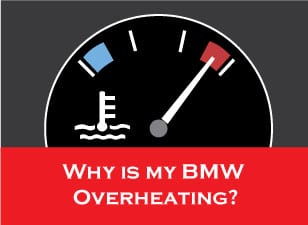It is easy to spot an overheating car engine. The temperature gage goes up. You might see white smoke or steam coming out from under your hood. You might notice a hot or burning smell. But what should you do? And why is it happening?
First, what should you do?
- Pull over as soon as you can, turn off the engine and open the hood to give extra air to the engine.
- If you must drive, turn off the A/C and roll down your windows.
- Turn on the heat to vent the heat out of the engine.
- When possible shift into neutral and rev your engine to circulate the antifreeze through the engine.
- Do NOT remove the radiator cap until the engine has cooled down. Very serious steam burns could occur.
Now what might have caused your car to overheat?
Most cars have two or three engine gauges on the dashboard: fuel gauge, battery charging system and engine water temperature. An engine that consistently runs at a high temperature is a warning sign of a more serious cooling problem and needs to be taken seriously. Ignoring it can lead to more expensive repairs in the future. Many things can cause your car to overheat but there are some obvious things to look for first:
- Low levels of antifreeze or coolant
- Leaking cooling system – hoses leaking coolant
- Failed cooling fan
- Broken fan belt
- Stuck thermostat
- Clogged radiator
- Failing water pump
- Broken temperature gauge or sensor
A car’s cooling system consists of four major components: radiator, water pump, thermostat, and heater core. Metal pipes and rubber hoses connect all these different parts to circulate the coolant through the engine helping the engine to operate at a safe temperature. Without this circulation of coolant, your engine heats up causing overheating and could lead to engine failure.
Prevention is less expensive than repairs. If you have noticed a water trail from under the engine area after the car has been turned off, this could be an indicator of a cooling system issue. Engine coolant/ Anti-freeze is usually a light green yellow color and has a sweet smell to it.
When the engine is cool, you can easily add coolant/ antifreeze and visually inspect the engine area to see if the cooling system is leaking and your radiator fans are running. For some of the other internal cooling components, bring your vehicle to us at Beyer Motor Works so we can check out your vehicle and let you know what we see is wrong and the cost to repair.
Don’t ignore a high temperature reading. It probably won’t magically go away, it is trying to keep you safe and avoid expensive engine repairs. Fill out the form to the right of this article to book an appointment so we can keep you safe on the road.


